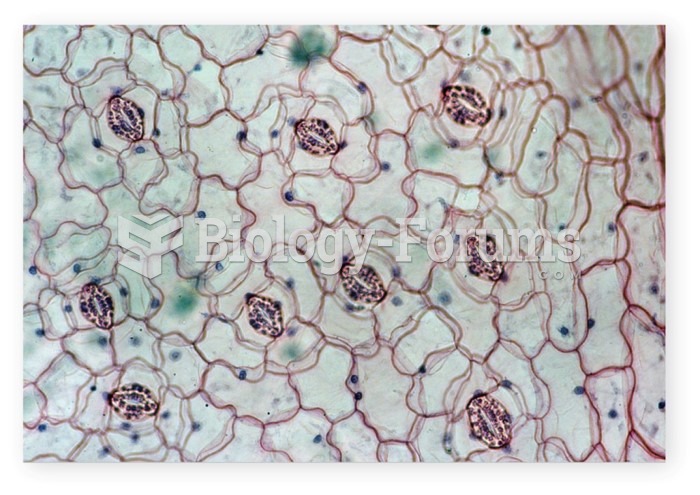This topic contains a solution. Click here to go to the answer
|
|
|
Did you know?
It is important to read food labels and choose foods with low cholesterol and saturated trans fat. You should limit saturated fat to no higher than 6% of daily calories.
Did you know?
Inotropic therapy does not have a role in the treatment of most heart failure patients. These drugs can make patients feel and function better but usually do not lengthen the predicted length of their lives.
Did you know?
Approximately 500,000 babies are born each year in the United States to teenage mothers.
Did you know?
The human body produces and destroys 15 million blood cells every second.
Did you know?
Excessive alcohol use costs the country approximately $235 billion every year.







